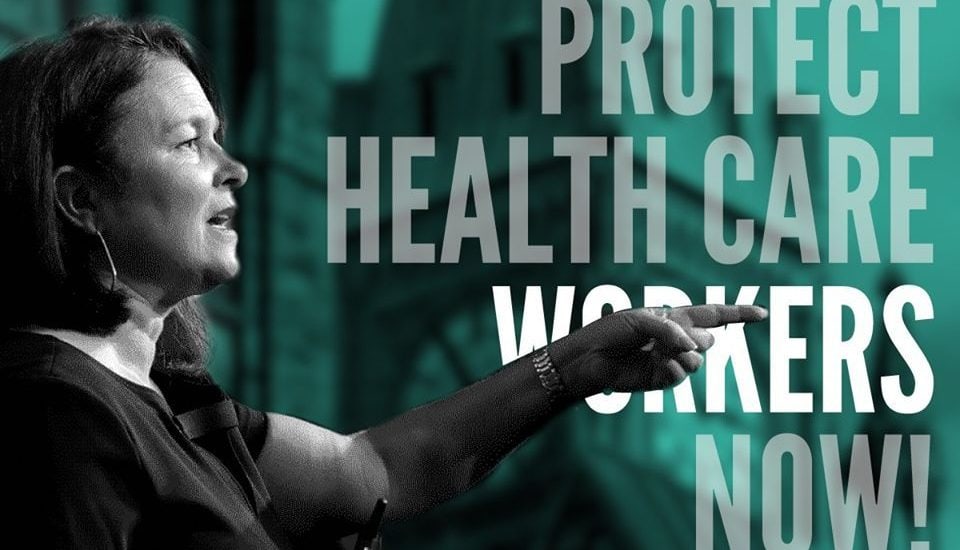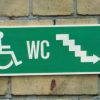
Nova Scotia’s health care Council of Unions is calling on government and employers to sign onto a safety protocol that ensures frontline workers are protected and supported during this unprecedented time.
Nova Scotia’s health care Council of Unions – the five unions representing health care workers providing care during the COVID-19 pandemic – are calling on government and employers to sign onto a safety protocol that ensures frontline workers are protected and supported during this unprecedented time.
In a press release dated April 3, the Nova Scotia Government and General Employees Union (NSGEU) reports that the NSGEU, the Nova Scotia Nurses’ Union, the Canadian Union of Public Employees (CUPE) Nova Scotia, Unifor and the International Union of Operating Engineers (which has paramedics among its members) have produced a joint communique that puts forward five standards for front-line health care workers and the required personal protective equipment (PPE) to deal with suspected, presumed or confirmed COVID-19 patients. It states in part:
“1. All health care workers who are within two metres of suspected, presumed or confirmed COVID19 patients shall have access to appropriate PPE. This will include access to; surgical/procedure masks, fit tested NIOSH-approved [the U.S. National Institute for Occupational Safety and Health] N-95 respirators, gloves, face shields with side protection (or goggles), impermeable or, at least, fluid resistant gowns. The employers commit to provide all health care workers with information on safe utilization of all PPEs and employees shall be appropriately trained to safely don and doff all of these supplies. There is not a scientific consensus on the appropriate level of respiratory protection for health care workers. While new research emerges daily there are conflicting reports of airborne transmission so, using a precautionary approach, the best protection would be provided by an N95 respirator. […]
“2. A point-of-care risk assessment (PCRA) must be performed before every patient interaction. The PCRA should include the frequency and probability of routine or emergent AGMP being required. If a health care worker determines, on reasonable grounds, that specific PPE is required, they shall have access to the appropriate PPE based on their PCRA, and this will not be unreasonably denied by their employer, or they shall be deployed to another area.
“3. Contact and droplet precautions must be used by health care workers for all interactions with suspected, presumed or confirmed COVID-19 patients. Contact and droplet precautions includes gloves, face shields or goggles, gowns, and surgical/procedure masks.
“4. N95 respirators must be used by all heath care workers in the room where AGMPs [aerosol-generating medical procedures] are being performed, are frequent or probable, or with any intubated patients [these procedures include manual ventilation, cardio-pulmonary resuscitation, high frequency oscillatory ventilation and others — WF Note.]. […]
“5. The employers and unions that prepared this communication will assess the available supply of PPEs on an ongoing basis. The employers commit to continue to explore all available avenues to obtain and maintain a sufficient supply. In the event that the supply of PPEs reach a point where current supplies are anticipated to last for only 30 days (i.e. a shortage), or where utilization rates indicate that a shortage will occur, the employers will be responsible for developing contingency plans in consultation with the unions and applicable Joint Worksite Health and Safety Committees to ensure the safety of health care workers.”
NSGEU President Jason MacLean explained to Workers’ Forum why such a protocol is necessary and why it must be signed by the government and the employers.
“We have not been able to have fruitful conversations with the Premier, or the Chief Medical Officer of Health or the Department of Health, and we want to make sure they are on the same page as us because we believe we need to protect health care workers so they are there for us if we need them,” he said. “Not only that, but the government is looking for people to volunteer in other places and it is actively reaching out to the public to try and hire more health care providers, but they are not going to attract anybody if they do not have the proper PPE in place. We don’t believe that what they are currently going by, which is the bare minimum, is enough. We want them to sign on and agree that people can make a judgement call if they need to have proper PPE. That statement is what we wholeheartedly believe and our request is that the government participate in it,” he added.
Reproduced, with permission, from Tony Seed’s excellent blog.
With a special thanks to our generous donors who make publication of the Nova Scotia Advocate possible.
Subscribe to the Nova Scotia Advocate weekly digest and never miss an article again. It’s free!



